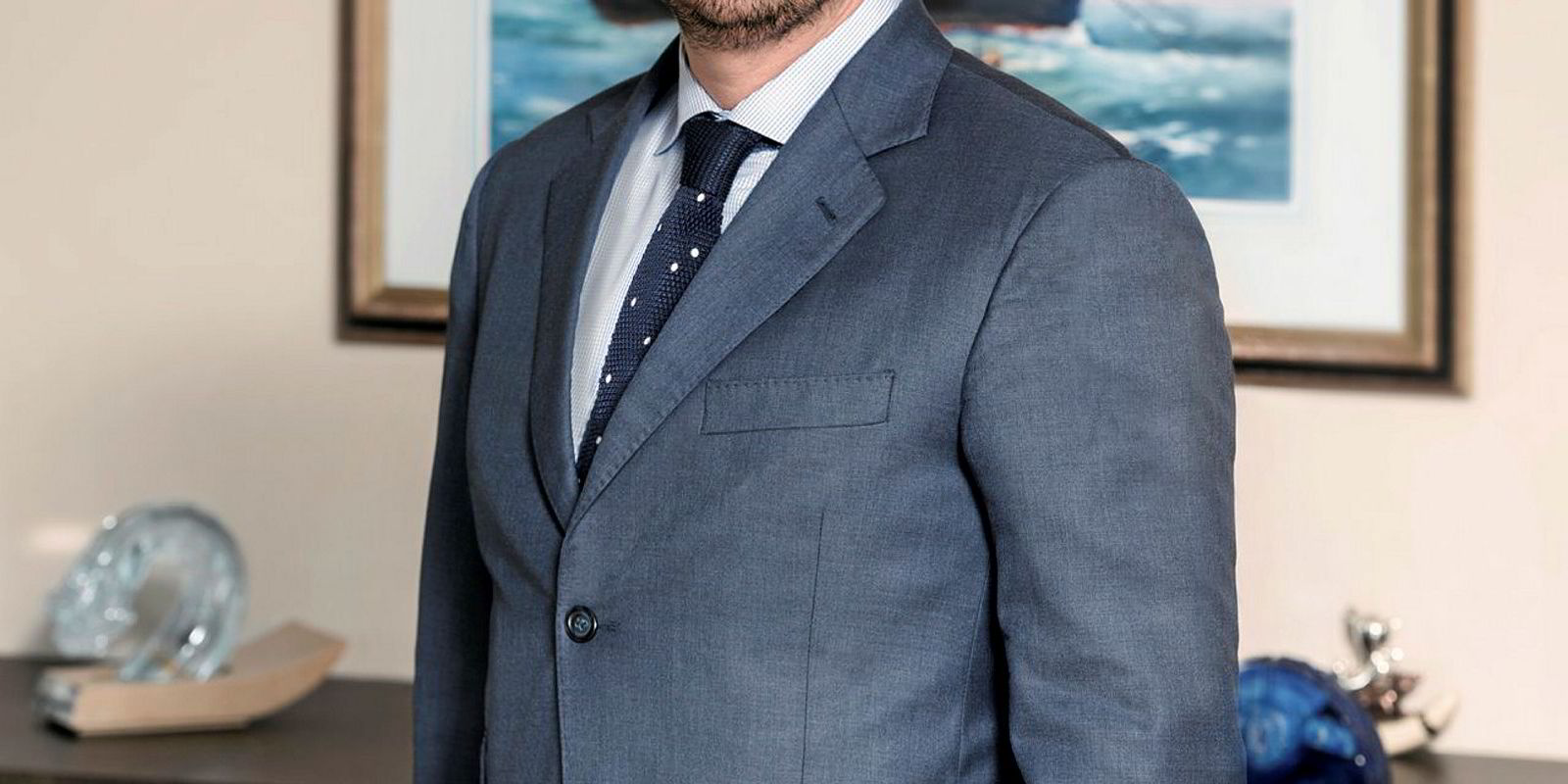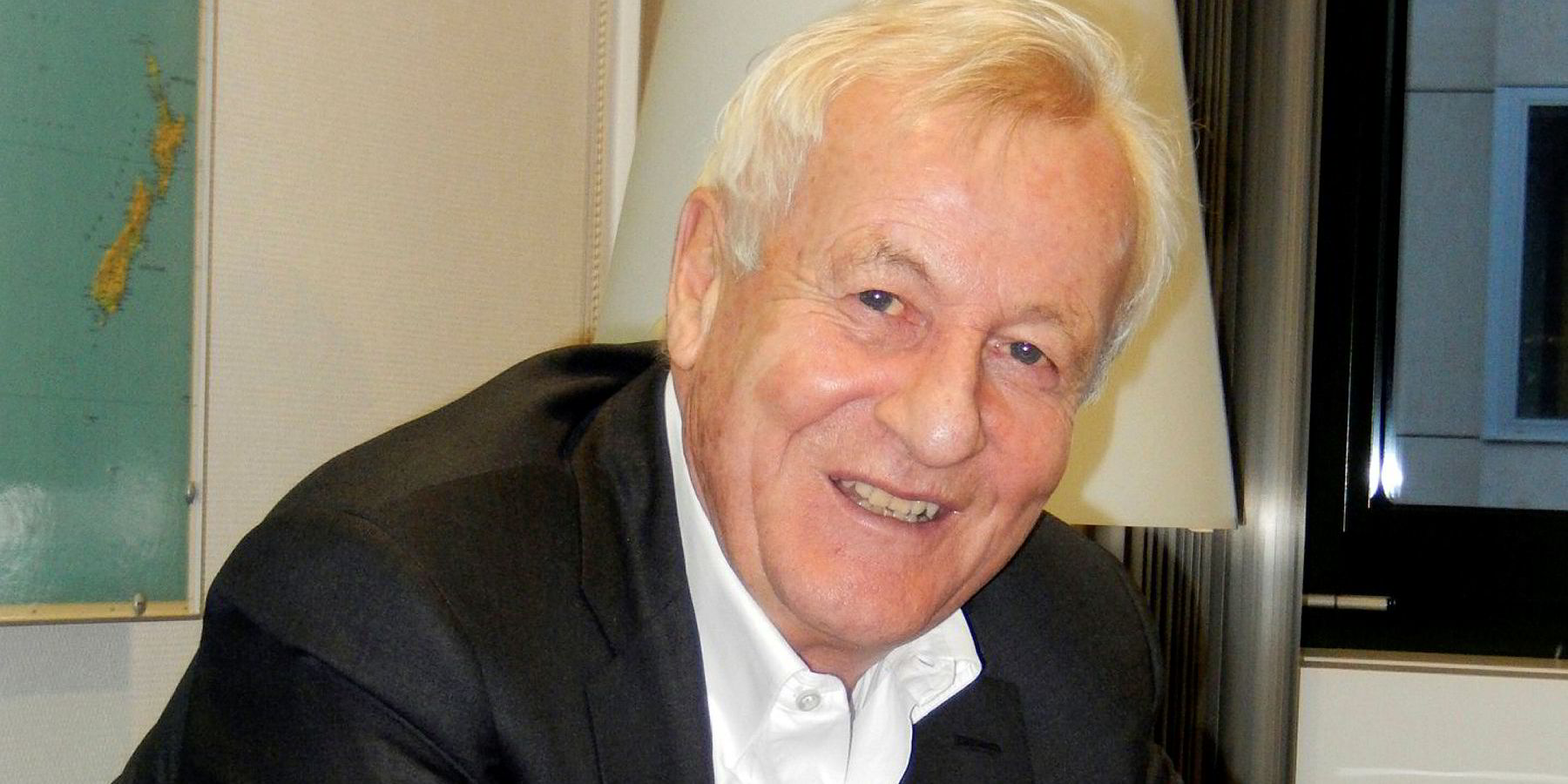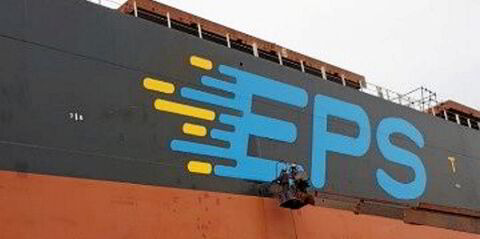The Offen Group has sealed a deal with leading liner operator Mediterranean Shipping Co (MSC) to install exhaust gas scrubbers on nine large containerships.
It has taken the decision after agreeing a six-year charter extension on a series of 14,000-teu vessels fixed with Geneva-based MSC.
The move provides a springboard for a project that could see hybrid scrubbers retrofitted onto up to 20 neo-panamax containerships in the German owner's fleet.
Hybrid scrubbers built by German engineering plant Bilfinger will be fitted onto an initial batch of five of Offen's “Italy-class” 14,000-teu vessels on long-term charter with MSC.
These ships were fixed to MSC until the end of 2022, but have had their charters extended until 2028 on confidential terms.
The remaining four sisterships in the series are expected to see scrubbers fitted, although the deals remain on subjects.
Managing owner Claus-Peter Offen told TradeWinds that significant cost savings could be achieved by fitting scrubbers to the biggest containerships in his fleet.
He estimated that a spread of $250 per tonne between high-sulphur and low-sulphur fuel was significant for a 14,000-teu vessel.
'Difference' in cost
These ships are burning around 100 tonnes of fuel per day, which means that non-scrubber fitted containerships would be paying around $25,000 per day extra for low-sulphur fuel over 250 to 300 days at sea.
“You’re talking $7m to $8m difference in fuels,” Offen said.
The scrubber move caps a busy week for the Hamburg-based shipowner and manager, which is also working on the pending sale of up to 10 product tankers.
But Offen believes it could make sense to install scrubbers on the 20 largest ships in his fleet.
Plans are being drawn up to equip further neo-panamax vessels in the fleet with hybrid scrubbers during the course of next year, Offen said.
The cost of installing hybrid scrubbers is estimated to be in the region of $7m per vessel for the larger ships. That suggests that more than $60m could be spent on the nine ships so far, or up to $140m if all 20 are retrofitted.
Offen believes the investment is worthwhile.
“If you have vessels with long-term charters where you can do it as a joint effort with charterers, then it is probably a useful decision for both sides,” he said.
He said his preference for hybrid scrubbers, which can switch between open and closed-loop, is a result of the “political” risks associated with open-loop systems.
Conformity concerns
Offen fears that open-loop scrubbers “may not be in conformity with what the lawmakers thought of” and is concerned that legislation affecting them could be revised.
He added that another reason for opting for hybrid scrubbers is the demands of container shippers seeking greener ways to transport their cargoes.
“Quite a few of the major shippers are seeking shipping partners that use environmentally friendly solutions — which means closed-loop — and want to have green cargo,” Offen said.
Hybrid scrubbers are more expensive to operate and may not hold the same appeal for product tanker or bulker owners.
“But on the container, our core business, there is a lot of interest in doing something environmentally friendly. This is the hybrid,” he said.





